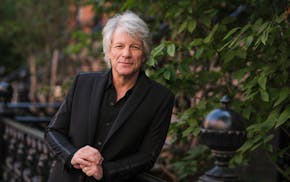Minneapolis writer and two-time Minnesota Book Award-winner Kent Nerburn describes the culture and history of American Indians with profound respect and deep appreciation. He's neither Indian himself nor an anthropologist, but his skills as an observer and listener are breathtaking.
Nerburn's ambitious, satisfying new book — the third in the "Neither Wolf Nor Dog" trilogy — is a nonlinear journey on many levels. It is the story of a search to understand what happened to a young Dakota girl named Yellow Bird who was sent to an insane asylum for Indians many decades ago, and it is also a trip back through centuries of painful American Indian history. In the telling, Nerburn adopts Indian oral traditions, visiting elders who share stories and direct him to other elders, other places.
Nerburn's narrative isn't merely about the horrors experienced individually by Yellow Bird and collectively by American Indians at the hands of a U.S. government seeking to "Christianize and civilize" them. It is also about the enduring power of American Indian traditions. Those traditions, Nerburn makes clear, continue to offer dignity and cultural viability in the face of historical trauma.
Nerburn writes beautifully and with insight about the people he meets and the landscapes of Minnesota and the Dakotas. Here, he describes the changing seasons of northern Minnesota:
"Day by day, the languid haze of autumn took on a crisper edge as the days shortened and the nighttime winds began to rise. The waters of the lake by our home darkened, and geese moved with urgency through heavy, leaden skies. The seasons were turning; snow was in the air."
Nerburn offers this same patient observation and appreciation to the Indian elders he encounters, and they open up to him.
Nerburn accepts that misconceptions and cultural judgments will be made on all sides, including by him, and yet he never stops seeking a place of higher knowledge.
"The Girl Who Sang to the Buffalo" is about the enduring pain of history, and a celebration of a American Indian culture that has somehow endured against all odds.
Chuck Leddy is a member of the National Book Critics Circle. He lives in Boston.
Olympian Kristi Yamaguchi is 'tickled pink' to inspire a Barbie doll

After 4 decades in music and major vocal surgery, Jon Bon Jovi is optimistic and still rocking
Rom-com author Emily Henry knows the secret to having a healthy relationship with love

